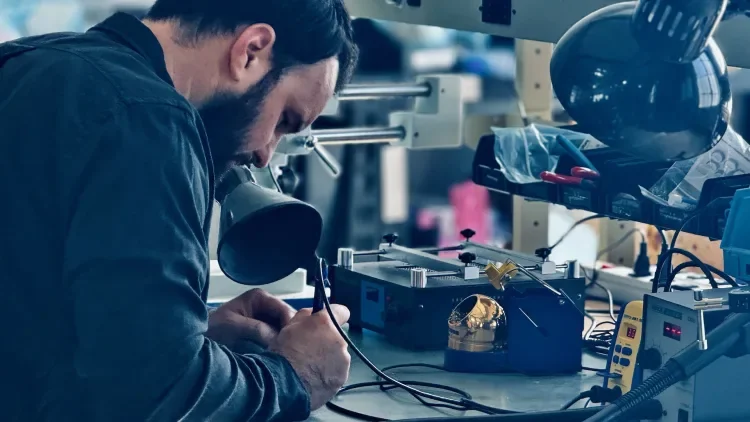Powering the Future of Mobility | Fast Company Feature
Tau Motors uses advanced technology and an innovative design model to improve electric vehicle performance
Originally published: Fast Company“We’re a technology company, and so innovation is really our product,” Pennington says. “We can’t enter these structurally large markets with me-too products. We need to add value and can only do so by approaching things differently.”
Automakers around the world are racing to design and produce new electric vehicles (EVs). One problem: They’re often layering new demands over the same technologies that have existed for decades. While that process may ease the unveiling of new EVs, it also can mean missing out on big improvements in performance and costs. Instead, what if automakers could go straight to using the most cutting-edge technologies in their EVs?
Enter Tau, a California-based developer of power conversion systems. Tau provides automakers with a unique technology platform that makes the process of developing EVs easier. The platform enables carmakers to rapidly design and produce EVs, firmly grounded in innovations across software, computers, power electronics, semiconductors, and manufacturing that have emerged in recent years.
“Instead of having to hire a team of PhDs, build out laboratories, and spend years to do all this design, development, and validation, we have a modular technology platform that can be built on top of,” says Wesley Pennington, founder and CEO of Tau. “Using our software-defined approach, we can aggregate functionality into a smaller number of components to offer leading performance, efficiency, and economics. Our platform does more with less.”
As a result, automakers can produce electric vehicles more quickly and more affordably. It can cut years off the typical vehicle development timeline and save individual carmakers hundreds of millions of dollars through more efficient use of materials, enhanced manufacturing processes, more effective components, and—most important—critical time.
Tau’s work to speed the electrification of vehicles worldwide—and to improve the efficiency of power conversion in areas including solar power, data centers, and powering the grid —has earned it a spot on this year’s list of Fast Company’s Best Workplaces for Innovators.
A True Eco Boost
Traditional power conversion technologies, such as motors, require rare earth metals to generate the required efficiency. These materials are overwhelmingly sourced in China. They’re also expensive, representing roughly half the cost of an EV motor, even though they are a tiny fraction of the materials used. Then there’s the environmental impact of sourcing rare earths: Mining just one ton of neodymium creates 2,000 tons of toxic waste.
By contrast, Tau’s alternative solutions produce improved performance leveraging software. The resulting efficiency gains, material reductions, and scalability allow carmakers to save hundreds of millions of dollars in vehicle production costs.
Tau’s approach to power conversion can be used in many sectors that are being electrified, including industrial, aerospace, defense, and alternative energy systems. The potential climate benefits are significant. Reducing losses in power conversion at data centers—where AI is projected to drive 160% increase in power demand—for example, would greatly reduce power consumption as well as carbon emissions.
Tau is actively expanding into these markets, bringing its technologies to bear on the wider electrified world. The company recently launched an energy product that allows vehicles to serve as a type of power plant for the home or infrastructure through vehicle-to-grid connectivity. “We’re a technology company, and so innovation is really our product,” Pennington says. “We can’t enter these structurally large markets with me-too products. We need to add value and can only do so by approaching things differently.”



